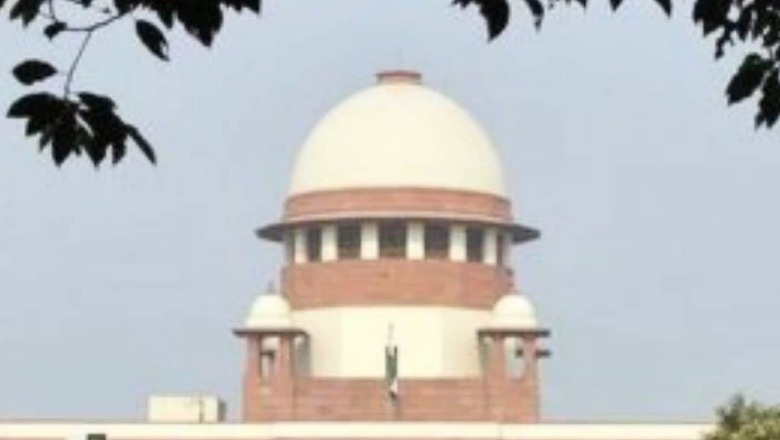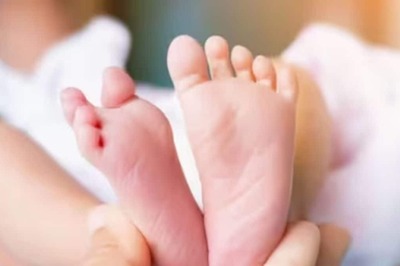
views
The Supreme Court on Monday set aside the bail granted to a former Rajasthan anti-corruption bureau official, who is accused of murdering an Intelligence Bureau official by injecting him with ketamine, an anesthetic drug. A bench of Justices DY Chandrachud and BV Nagarathna said the accused Praveen Rathore himself being an employee of the Anti-Corruption Bureau (ACB) at Jhalawar, the likelihood of the evidence being tampered with and of the witnesses being suborned cannot be discounted.
“For the above reasons, we allow the appeal and set aside the impugned order of the High Court dated February 12, 2021, enlarging the first respondent (Praveen Rathore) on bail. As a consequence, the first respondent shall surrender forthwith and be taken into custody,” the bench said.
It said that the High Court ought to have had due regard to the seriousness and gravity of the crime and the deceased being employed with the Intelligence Bureau in New Delhi and Rathore an employee of the ACB, Jhalawar, the material which has emerged during the course of an investigation cannot simply be ignored or glossed over (as the High Court has done).
The bench said that when the Court is called upon to evaluate whether a case for the grant of bail has been made out, it is inappropriate to enter upon matters which would form the subject of the trial when evidence is adduced by the prosecution.
Bail was granted to the co-accused Anita Meena primarily and substantially on the ground that she had a child of eleven months with her in jail. This cannot be the basis to a claim of parity on the part of the first respondent, it said.
The bench further said that Rathore cannot claim parity with the co-accused since the allegations in the FIR and the material that has emerged from the investigation indicate that a major role has been attributed to him in the murder of the deceased.
For the above reasons, we have come to the conclusion that the High Court was in error in allowing the application for bail. The consideration that twenty-five witnesses out of seventy-six witnesses had been examined must equally be weighed with the seriousness of the crime, the role attributed to the first respondent, and the likelihood of the evidence being tampered with if the first respondent were to remain on bail during the course of the trial, it said.
The top court said that it was wholly inappropriate for the High Court to proceed on the surmise that the police had developed a case that Ketamine was administered, after four months of the incident. According to the FIR lodged by the father of the deceased, who was a Senior Technical Officer with the Intelligence Bureau in New Delhi and his son was married to one Anita Meena on January 21, 2011, who is involved in the murder.
The couple had two young children aged 6 years and 4 months and the relationship of the couple is alleged to have encountered difficulties. On February 14, 2018, the deceased travelled from New Delhi to Ramgajmandi from where he boarded a train at 6 pm for Jhalawar where his home was situated. Between 7:30 and 8 pm, the deceased’s father received a phone call that his son had been found in an unconscious state near the Railway Crossing Bridge and was declared brought dead at the hospital.
On February 28, 2018, samples of the viscera obtained during the post-mortem were sent to the Medical College Jhalawar and Forensic Science Laboratory, Jaipur, for examination.
On March 9, 2018, Chief Judicial Magistrate, Jhalawar ordered the investigation in the case on an application made by the father of the deceased. The contents of the FIR, which was registered at the behest of the father of the deceased, said that six months after his marriage, his son was selected for an appointment with the Intelligence Bureau while his spouse was working as a teacher with the Panchayat Samiti.
He had further claimed that two months prior to the incident, the deceased had called upon Rathore not to visit their house anymore and after the death of his son, the ACB official was not present either in the hospital or during the cremation.
He further alleged that Rathore was present at every hour when the wife of the deceased had delivered a child and he had developed close relations with her. Based on an analysis of the call details records, police had arrested co-accused Shahrukh Khan, while Rathore absconded and during the course of the investigation, it was allegedly revealed by the co-accused that the death of the deceased had occurred by injecting him with ketamine.
The wife of the deceased was also arrested on June 25, 2018, while co-accused Farhan Khan was arrested on June 28, 2018, and the mobile phone of the wife of the deceased was seized and it showed that she had been in constant touch with Rathore after the death of her husband.
On October 25, 2018, a report of the State FSL at Jaipur was submitted indicating that the samples of remnants containing viscera had tested positive for the presence of the drug, Ketamine.
On September 2, 2018, a charge sheet was submitted for offences under Sections 302, 364, 201, and 120B of the IPC and under Section 3(2)(v), SC/ST Act, against Rathore and four other co-accused–Anita Meena, Shahrukh Khan, Farhan Khan, and Santosh Nirmal.
Read all the Latest News , Breaking News and Ukraine-Russia War Live Updates here.




















Comments
0 comment